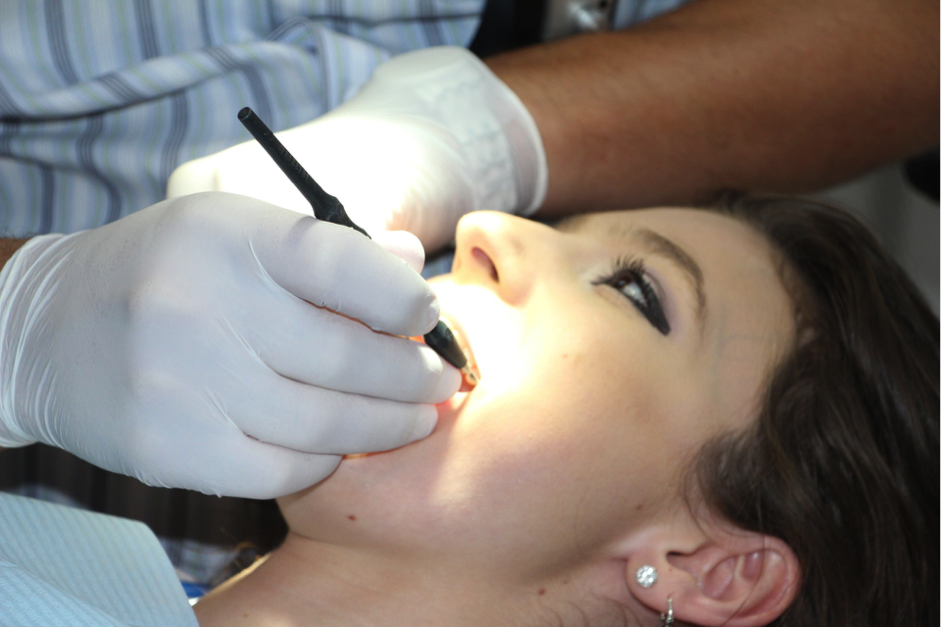By Own Correspondent
Does the thought of visiting the dentist and the fear of sharp dental needles scare the life out of you? Don’t worry because you’re not alone.
Numerous studies conclude that more than 15% of Americans and 36% of British people abstain from going to the dentist because of dental anxiety.
This fear of dental treatments, also known as Dentophobia can originate due to a variety of reasons. Previous painful dental experience, fear of needles, fear of laying still and having no control triggers anxiety in many people.
Also, many people are excessively self-conscious of their dental health and closeness to a dentist can induce anxiety in these people.
The fear of dental pain is common mostly in adults above 24 years of age and these people show severe signs of anxiety, such as sweaty hands, high blood pressure, loss of breath, insomnia, and restlessness.
This kind of anxious behavior can lead to serious health-related predicaments. It leads to bad oral health and poor periodontal status and in extreme cases and even leads to oral cancer and excessive insomnia.
HOW IV SEDATION CAN HELP
Intravenous Sedation (IV) AKA ‘Monitored Anaesthesia Care (MAC) involves the administering of a sedative through a vein. An IV sedation is highly efficient in coping with dental anxiety.
Although there are various other methods of sedation like oral sedation and deep sedation, IV sedation offers better control than these methods.
Executing IV sedation requires a high level of expertise and therefore Dental Continuing Education is essential for all dentists to enhance their expertise.
1) QUICKER AND MORE EFFICIENT
- Since IV sedation injects the drugs directly into the veins, it works more quickly than other types of sedation.
- It also offers a shorter recovery period so that patients can recover back from their treatment promptly.
- It also lowers the ‘gag reflex’ in several sensitive patients that aids careful dental treatment.
2) MORE CONTROL
- IV sedation helps in tailoring the amount of sedative based on an individual’s requirements and results in lesser complications and side-effects.
- An IV sedation is useful for long and more painful treatments like wisdom tooth extraction as the dentist can manage the dosage of the medicine accordingly.
- It offers a higher level of sedation than oral sedation even from fewer doses. This reduces health hazards.
3) BETTER COMMUNICATION
- It means that you will be in a semi-conscious state. Although you will feel no pain you will still be able to communicate with your dentist.
- This ensures an enhanced dental treatment as the dentist will be able to alter the treatment based on your needs.
4) Amnesia
The last thing an anxious dental patient wants is to remember the painful and stressful dental treatment.
- IV sedation induces a state of amnesia after the injection of the medicines. This ensures that the patient would hardly remember anything about their treatment (two targets one arrow).
- Unlike deep sedation and oral sedation IV sedation offers a shorter recovery period so that the patients only forget about their treatment.
5) LESSER HEALTH RISKS
According to the Journal of Anesthesia & Clinical Research other forms of sedation cause dangerous health risks in many individuals.
- Obese patients and patients suffering from diabetes should be very careful while going for general anesthesia as it can be hazardous in these cases.
- Oral sedation can lead to drug allergies, seizures and even sleep apnea as there is no way to alter the medication based on the situation.
- General anesthesia slows down the respiratory and cardiovascular systems without any control which can lead to excessive and prolonged seizures and other ailments.
- IV sedations enable the dentist to be in the driver’s seat. A dentist can alter the dosage and manage the situation to reduce health hazards.
6) BETTER FOR CHILDREN
- Other forms of sedation are not suitable for children as heavier doses can severely harm the cardiovascular and respiratory systems.
- Furthermore, the health risks associated with these sedations can have long-term impacts on children.
- The IV sedation will keep the children calm and dreamy for a prolonged period that will help the dentist ineffective treatment.
- The most pivotal advantage of IV sedation for children is that the dentist can regulate the dosage of medicines customized to the child’s condition.
7) BETTER ORAL HEALTH
- Researches prove that people who suffer from dental anxiety can go to extreme lengths to avert any sort of interaction with the dentist.
- IV sedation dentistry is best-suited for people with high levels of anxiety and phobia. This sedation provides extensive comfort to highly anxious people.
- These people can undergo dental procedures like root canal treatment, dental fillings by administering IV sedation that consequently ensures enhanced oral health.
- Since IV sedation keeps patients relaxed for longer time periods, they become able to undergo multiple procedures in one sitting.
- This significantly diminishes dental cost by reducing dental visits, increases self-respect and boosts confidence.
CONCLUSION
The fear of a dentist appointment is tormenting to a large percentage of the population. This fear can arise due to the phobia of sharp needles or simply out of embarrassment of bad oral health. Dental anxiety can lead to serious health implications ranging from oral cancer to high blood pressure and insomnia. IV sedation puts the patients in a long dreamy state by injecting the medicines directly into the veins. It is beneficial for highly anxious people. It offers better control during the treatment and lesser health-related risks. It is also pocket-friendly and helps a lot of people inputting their nervousness to ease.
REFERENCES
- https://www.brigliadentalgroup.com/blog/sedation-dentistry/iv-sedation-dentistry-vs-general-anesthesia/
- https://www.ncbi.nlm.nih.gov/
